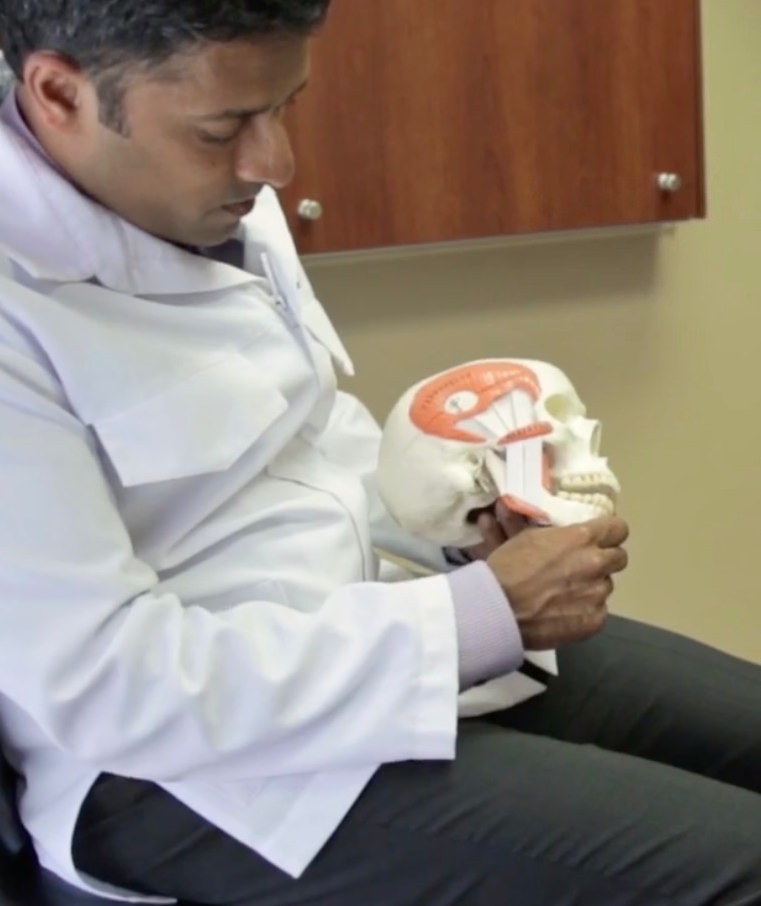Posted on Tuesday, October 29th, 2019 | 13,688 views
Oftentimes our dental patients that are suffering from TMJ joint disorders, ask us if the symptoms and headaches will go away on their own.
This is a question that frequently comes up at our practice from patients that have been referred to us to have their headaches and TMJ symptoms assessed.
The short answer is no, generally TMJ symptoms and headaches do not go away on their own. The key is finding out what the causes are of these symptoms.
There Are Many Potential Causes of TMJ
 Headaches can be linked to several causes. In some cases the cause is neurological but in the case of TMJ jaw problems, the cause of headaches is related to the alignment of your bite and possible teeth clenching/grinding.
Headaches can be linked to several causes. In some cases the cause is neurological but in the case of TMJ jaw problems, the cause of headaches is related to the alignment of your bite and possible teeth clenching/grinding.
This is especially true if the headaches occur in the temple area and/or around your cheeks and lower jaw. Sometimes TMJ headaches can radiate to behind your eyes and into the neck and back regions.
See TMJ and TMD Treatments For Correcting Jaw Problems
TMJ stands for temporomandibular joint which is your jaw joint and it is a part of a complex system of muscles, nerves, tissue and bones, so symptoms can be linked to several causes.
There are many causes of TMJ disorders including internal issues within the joint such as osteoarthritis, bone diseases, and in some rare cases a tumour or a cancerous lesion.
Bite Imbalances
In the majority of cases the cause for TMJ symptoms is linked to a bite imbalance that can result in grinding and/or clenching of their teeth. The way your teeth meet when you bite and grind in any direction can affect how tense your jaw muscles become. The more tense your jaw muscles are, the more force you have to exert on your teeth and the more stress that can occur within your TMJs.
Tense Jaw Muscles
There is a jaw muscle that is directly connected to a disc within your TMJ and if it is tense and in spasm mode, it can cause “clicking” of this disc against your jaw to occur. In short-time this clicking can lead to soreness and a breakdown within your joint.
Go To Your Dentist For An Evaluation
A proper evaluation of your overall jaw system (TMJs, muscles, teeth) is an essential step to figure out what is causing any TMJ headaches. If the cause is related to your bite or possible grinding/clenching of your teeth, there are ways to treat this including using splint therapy and bite balancing.
Only after a thorough examination followed by an accurate diagnosis can plans be made to reduce the symptoms, and potentially make them and your TMJ headaches go away.
Read More...
About Dr. Pio Modi
After Dr. Modi graduated from McMaster University with an Honours B.Sc. in chemistry in 1997, he received his Doctorate of Dental Surgery from the University of Toronto in 2001. He began to practice dentistry in Brantford the following year. Throughout his career he's completed hundreds of hours of continuing education programs and has studied with some of the best educators in the industry.
I was having major headaches because of jaw problems, and I can say getting my situation evaluated was the best thing I could do. My advice is don’t ignore the problem, get your jaw fixed. It’s easy actually.
How did you fix your jaw? Night guard? I have chronic headaches for years.
Hi Sandra and thank you for your comment. I would suggest that if you’ve had jaw problems and/or chronic headaches for years, they could be related. The best thing to do is to see your dentist as soon as possible. Tell him your issues and have him do an evaluation of your jaw and bite. I hope this helps.
The night guard helped my headaches quite a bit. I still have them, but they aren’t quite as often as they used to be….
Is it normal to have a headache all day everyday with tmj? I’m going on week 4 and it’s becoming unbearable mostly on my left side above ear but can move around head
Hi Joanne, so unfortunately headaches can be associated with TMJ disorders and can also be chronic. When this is happening, there is often a muscle-bite disorder that is either the main cause or secondary contributor to the headaches. Often in the situations a well designed full coverage splint, often referred to as a nightguard, would be helpful to alleviate the symptoms. I hope this helps.